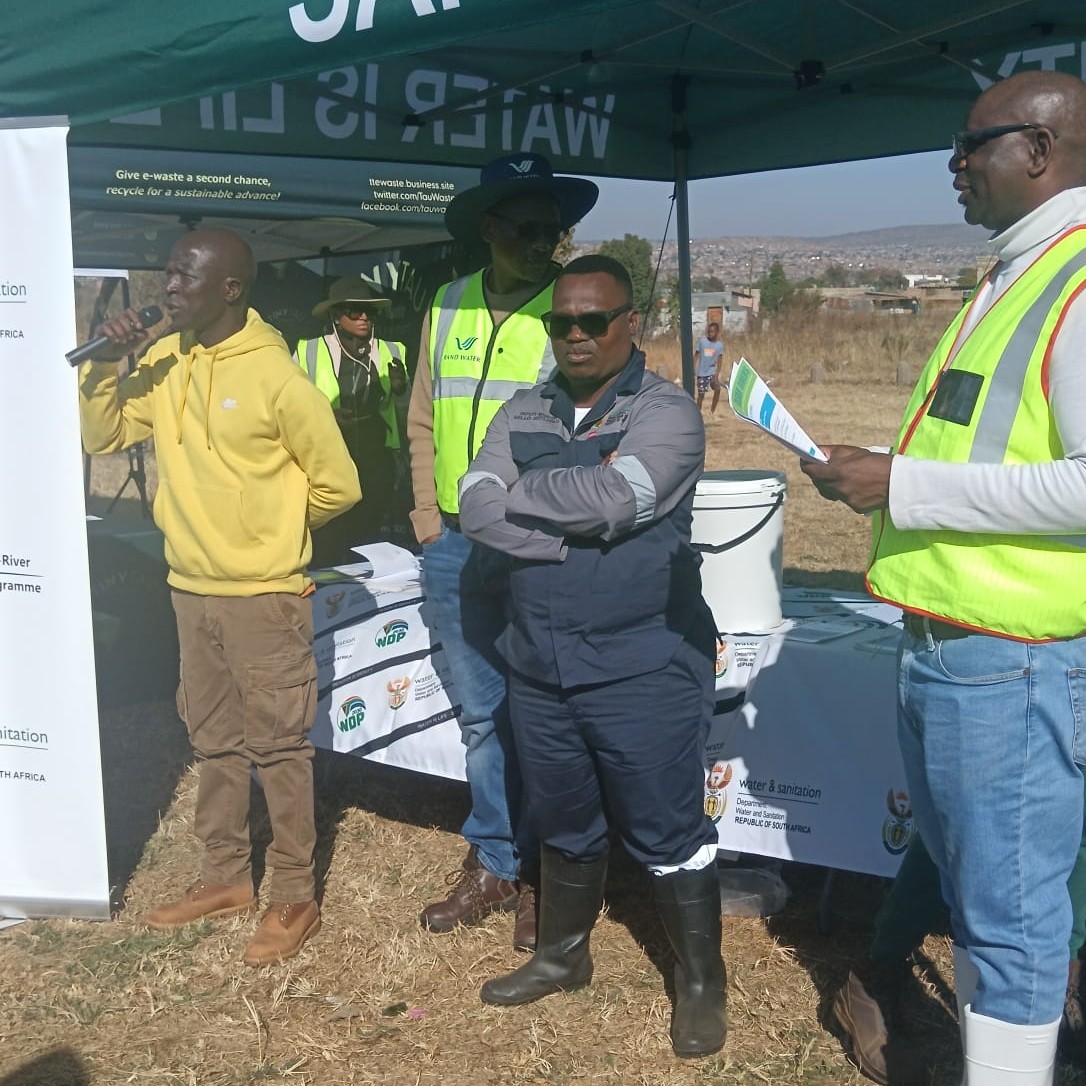Deputy Minister Urges Winterveld to Protect Rivers Amid National Water Crisis
Minister Seitlholo’s remarks highlighted a critical yet often overlooked truth: the quality of water flowing from taps is inextricably linked to the health of upstream water ecosystems.

- Country:
- South Africa
In a heartfelt appeal to the community of Winterveld, north of Tshwane, Deputy Minister of Water and Sanitation Sello Seitlholo has urged residents to take greater responsibility in protecting South Africa’s rivers, wetlands, and freshwater sources. His message, delivered during a river clean-up campaign at a tributary of the Tolwane River, underscores the escalating threat of pollution to the country’s water systems — a threat he described as a “crisis we do not talk about.”
The clean-up formed part of the Department of Water and Sanitation’s annual Clear Rivers Campaign, held every July in support of Mandela Month, to inspire public participation in preserving South Africa’s fragile water resources.
Water Quality Starts at the Source, Not the Tap
Minister Seitlholo’s remarks highlighted a critical yet often overlooked truth: the quality of water flowing from taps is inextricably linked to the health of upstream water ecosystems. Communities tend to only react when the water stops flowing, he said, but fail to act against the visible pollution of rivers and streams, which is the root of many water supply problems.
“The public is focused on the end-product – water from the tap – but forget the beginning of the value chain. If the community fails to take care of the river, the end-product will be compromised,” Seitlholo warned.
He further emphasized that sewerage pollution, illegal dumping, and careless waste disposal into local rivers are severely degrading water quality, particularly in urban and peri-urban areas like Gauteng.
Water: A Non-Replaceable Resource
Drawing a sharp contrast between water and electricity, Seitlholo underscored the non-substitutable nature of water. While alternative energy sources such as gas or wood exist, water, once lost or contaminated, has no substitute.
“When there is no water, it just cannot be replaced,” he stated, cautioning against the complacency shown by some communities regarding water preservation.
Community-Driven Action: Winterveld Steps Up
The clean-up event was marked by broad community participation, including:
-
Local residents and youth volunteers
-
Environmental stakeholders
-
City of Tshwane municipal workers
-
National and provincial officials
The City of Tshwane provided waste removal services to collect bags of plastic, household garbage, and industrial debris found dumped along the riverbank.
These efforts form part of a broader national campaign aimed at empowering citizens to become active custodians of their environments, rather than passive consumers of public services.
Clear Rivers Campaign: Mandela Month in Action
The initiative aligns with Mandela Month's theme for 2025: “It’s still in our hands to combat poverty and inequality”, encouraging all South Africans to dedicate 67 minutes of service to their communities in honour of Nelson Mandela’s legacy.
The Clear Rivers Campaign is observed under the slogan: “South Africa is a water-scarce country – clean up and protect our water resources.”
With South Africa ranked among the 30 driest countries in the world, clean rivers and protected catchment areas are essential not only for biodiversity and human health, but also for economic growth, agriculture, and climate resilience.
Waste Management, Public Awareness, and Long-Term Change
Minister Seitlholo believes that environmental sustainability can only be achieved through collective action and behavioral change. Awareness campaigns and river clean-ups, while symbolic, serve a larger purpose — they create visual reminders of the urgent need to stop pollution at its source.
“We have messed up our environment,” Seitlholo lamented. “People are throwing foreign objects into our rivers, and that has become normalized. This must stop.”
He called on all municipalities, schools, community leaders, and civil society organisations to make environmental care part of everyday life, rather than a once-a-year act of charity.
Rivers Are Lifelines – Not Dumping Grounds
Hydrologists and environmental scientists echo the Minister’s concerns, warning that the silting, contamination, and ecological collapse of South Africa’s rivers can lead to water insecurity, higher purification costs, and long-term health hazards.
Improving the water value chain requires attention at every stage — from protecting upstream sources, preventing sewerage discharge, to ensuring safe infrastructure and responsible consumer use.
Call to Action: It Starts with Every South African
The Deputy Minister’s message to Winterveld is a message to the entire country: water security is not just a government duty — it is a societal responsibility.
“Water is a vital enabler of economic growth, investment, and social development,” Seitlholo concluded. “If we are serious about our future, we must treat our rivers as sacred resources – not waste bins.”
As Mandela Month continues, the Department of Water and Sanitation hopes the momentum built in Winterveld will spark similar efforts nationwide, planting seeds of environmental stewardship and intergenerational responsibility for South Africa’s most precious resource — water.










